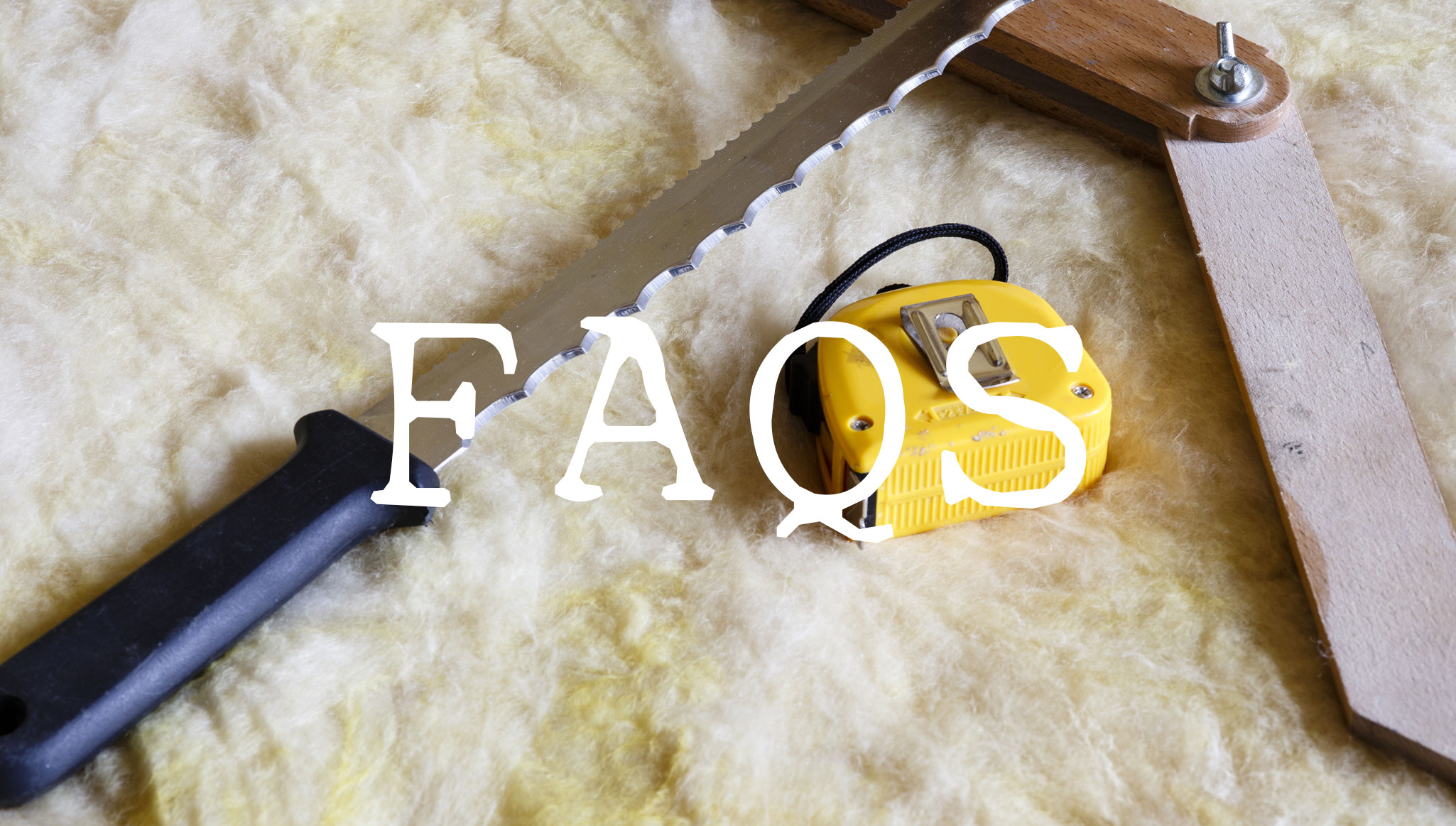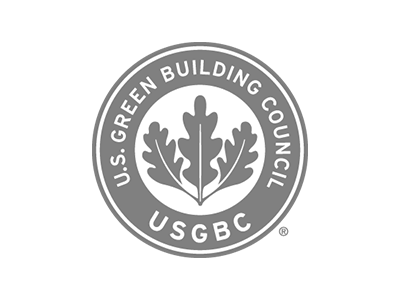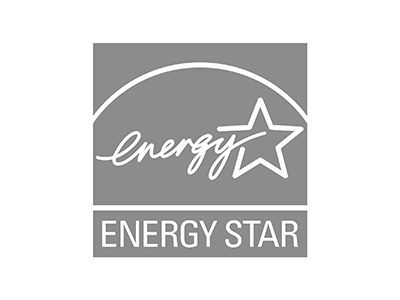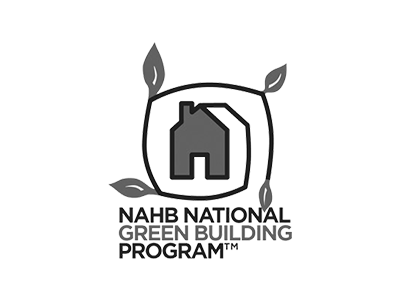Rely on the Building Science Experts
Nobody understands the science of building better than . If you want to create a thermally efficient and air tight space, it's not enough just to insulate. You must choose the right insulation and air sealing system for the application, and be sure it's properly installed.LET. US. HELP.
Foam Insulation FAQS
When can spray foam be installed?
Spray foam insulation is professionally installed at the same point in the construction cycle as other types of insulation. That is, it should be installed after the rough plumbing, electrical wiring, and heating and air conditioning ducts have been installed, but before the interior walls are completed in new home construction. In some cases spray foam also can be applied in older homes, to the inside of roofs and under floors after construction has been completed.
How does spray foam work?
A two-part mixture is applied by trained applicators to the inside surface of exterior walls, to the underside of the roof, and beneath floors in basements and crawl spaces. The spray mixture expands rapidly to fill all cracks and voids, completely and permanently adhering to wood, masonry, metal studs and joists.
What types of spray foam products are available?
There are two basic types: closed-cell, rigid spray foam and "soft" or semi-flexible open-cell spray foams. See the article Learning the Difference between 1/2-lb and 2-lb Spray Polyurethane Foam for more information.
Which is better, closed or open cell?
Both systems offer significant advantages over fiberglass batting: ability to air seal; ability to fill cracks and conform to odd shaped cavities; and ability to hold their shape over time and under adverse conditions. But only closed-cell foam has the thermal insulation value (R-value) to bring your home up to Energy Star® standards with only one-half the thickness required for fiber insulations. In addition, closed-cell foam products increases the strength of you wall system (it's approximately doubled) and increase the water resistance of your home's exterior.
How does closed-cell spray foam provide moisture protection, yet still breathe?
Unlike cellulose and fiberglass materials, closed-cell foam is impervious to water absorption and wicking. Yet, like Gortex® fabric, the closed-cell structure allows the passage of water vapor (high energy particles) to allow your home envelope to "breathe". Liquid water has much larger particles and is unable to pass into or through a closed-cell foam barrier.
What innovative energy saving techniques does spray polyurethane foam allow?
Several:
- You won't need house wrap with our system. The air and moisture sealing effects of the spray polyurethane insulation are far superior to what house wraps can do. Don't waste your money on house wrap if you are insulating with spray polyurethane.
- You can encapsulate your entire exterior house shell with spray polyurethane. In effect, this creates conditioned space everywhere including attics, basements, and crawl spaces. When ductwork is run through these areas, it is kept within conditioned space, substantially increasing the energy efficiency of your home. This reduces energy loss from recessed lights and drop ceilings while minimizing any chance of frozen pipes in colder climates.
- Spray polyurethane insulation will conform to any size or shape cavity. Bay windows, oval windows, angled walls, sloped ceilings, or any other unusual framing designs can be well insulated and tightly sealed the same as the uniform spaced stud walls.
How does the polyurethane insulation seal my house?
Our spray polyurethane insulation is sprayed on as a liquid which reacts and expands in place. This expansion action also seals all of the cracks and crevasses in your wall's exterior sheathing. The result is that air can no longer slip in: your house will be less drafty and more comfortable.
Air leakage can also introduce moisture into the wall cavity, resulting in wet insulation and mold and mildew. With the sealing effects of our spray polyurethane insulation, this will not be a concern.
Air leakage can also introduce moisture into the wall cavity, resulting in wet insulation and mold and mildew. With the sealing effects of our spray polyurethane insulation, this will not be a concern.
Won't sealing my house lead to indoor air quality problems?
Most house design professionals will advise you to seal the house structure as tight as possible and provide the necessary ventilation through the heating and air conditioning system. Many systems employ an "air exchanger" which is designed to pre-condition (either warm or cool) the incoming outside air with the outgoing exhaust air. In this manner, you can build an extremely energy efficient exterior shell using spray polyurethane foam while still providing controlled and energy efficient ventilation. Rocket Insulation and Coatings offers an excellent Energy Recovery Ventilator (ERV) made by Panasonic. SEE SPECS on Panasonic ERV.
Is spray polyurethane insulation code approved?
Yes. Building codes provide for the use of spray polyurethane insulation in the Foam Plastic section. This section of the code also describes the use of thermal barriers.
At what point in the construction of my house should spray polyurethane insulation be applied?
Normally spray polyurethane insulation is installed at the same point in the construction cycle as other types of insulation. That is, it should be installed after the rough plumbing, electrical wiring, and heating and air conditioning ducts have been installed. If you decide to seal the entire exterior house shell with spray polyurethane, spray insulation may need to be applied in some areas before the ductwork is installed.
Can I use spray polyurethane to insulate an existing home?
Yes. A popular retro-fit use for spray foam insulation calls for foam to be sprayed directly to the underside of roofing system. This replaces the conventional blown in insulation used in the ceilings. Spray Foam can also be applied in the basement / crawl space to eliminate air infiltration from the ground. Our newest technology is Injection Foam; injection foam is used to fill existing walls by drilling small holes and injecting the foam from the outside of the structure.
How does spray polyurethane insulation compare with glass fiber batts and blown-in cellulose?
- Glass fiber batts will not stop air leakage (it might filter out some dirt and dust). Blown-in cellulose will slow down air leakage. Spray polyurethane insulation will stop air leakage . . . dead.
- Glass fiber batts have an R-value of about 3.5 (1-inch thickness). Blown-in cellulose has an R-value of about 3 to 4 (1-inch thickness). Spray applied polyurethane insulation has an R-value of 6.5 to 7 (1-inch thickness).
- Glass fiber batts can sag over time; blown-in cellulose can settle over time: both situations leave sections uninsulated and you'll feel colder because of it. Spray polyurethane insulation completely adheres to wood and sheathing and is rigid; the result is a permanent barrier to heat loss and air entry.
- Spray polyurethane insulation will add strength and rigidity to your house. Glass fiber batts and blown-in cellulose will not.
Will I save money if I insulate with spray polyurethane insulation?
Yes! The installed cost of spray polyurethane is somewhat higher than traditional fiber batts or blown-in cellulose. However, the higher initial cost is partially offset because you need not ventilate the roof, the HVAC system is downsized and you will save in your heating fuel and electric bills. Studies suggest that homes insulated with spray polyurethane use 35 to 60 % less energy than homes insulated with conventional insulation. Your savings may be greater or less depending on your life style, appliances, house site, number and size of windows, etc.
Will spray polyurethane insulation lose R-value over time?
When first installed, spray polyurethane foam's R-value is about 10 for a one-inch thickness. Over time, the R-value drops to between 6.5 and 7.0 (one inch) and stabilizes at that value. The time it takes to reach an R-value of 6.5 to 7.0 depends on a variety of factors, including total foam thickness. We report a six-month aged R-value. Many industry studies indicate that a one-inch thick sample of foam will stabilize after six months and maintain that approximate R-value for decades.
Can spray polyurethane insulation be applied directly to electrical wiring? What about installed electrical devices like recessed lights?
Spray polyurethane can be applied directly to electrical wiring. Recessed lights or other fixtures may require a certain amount of air circulation around them for cooling purposes. In these cases, a box can be build around the fixture with gypsum wall board; then spray foam can be sprayed directly to the outside of the box.
Will spray polyurethane insulation deteriorate over time?
Not that we're aware of. We've looked at 20-year old spray foam projects and we have not observed any signs of deterioration. We expect our spray polyurethane insulation system to insulate and seal your home for the life of the house.
How long has spray polyurethane been used to insulate houses?
Spray polyurethane foam was commercially developed in the United States in the mid-1960's. Homes have been insulated with spray foam since that time.
Will spray polyurethane insulation absorb or entrap moisture?
Most moisture problems in houses are due to moisture entry from air leakage. Because spray polyurethane insulation provides such an excellent air barrier, this source of moisture is virtually eliminated. Other potential sources of moisture can be excluded with proper construction techniques and materials. Unusual building use (such as freezers or swimming pool buildings) may require a vapor retarder.
Does spray polyurethane foam contain formaldehyde?
No.
What equipment do I need to apply spray polyurethane insulation?
Required equipment elements include a plural component proportioner pump with heaters, dual high pressure heated hoses, high pressure mixing and spray gun, and feed pumps and hoses. In addition, an air compressor and electrical generator may be needed.
Can a homeowner apply spray polyurethane insulation?
Not practically. Spray polyurethane application requires complex equipment and a skilled installer.
Will spray polyurethane insulation strengthen my house?
Yes! Our closed cell foam is rigid and structural. Your walls will be more resistant to winds and you'll notice less creaking and shaking when doors are slammed or when the kids are romping about.
How long does it take to install spray polyurethane insulation?
Quite quickly. A typical 2000 sf house can be fully prepped and insulated with spray polyurethane in less than several days. Large houses or houses with complex design features could take longer.
Why Choose Us?

- Constant Owner interaction means no project manager or multiple people trying to make decisions.
- The highest quality products and with many small details that often go unnoticed by other contractors, let's take your insulation project to the next level.
- Quality Control. The owner is hands on throughout the project, if any problems or issues arise they can be dealt with immediately.
- Nonstop communication - The key to the success of your project is good communication. And, a big part of communication is listening. From the beginning of a project to its end, our company places a high priority on listening - to you, your needs and wishes.
- Solid Science - Our Building Science experts understand the principles of heat, air and moisture flow, and how the building envelope interacts with a building's mechanical systems as well as its occupants.

We are proud to announce that we have been accepted into Pearl's prestigious Contractor Advantage Network. Working with an elite network of highly-skilled contractors, agents, and brokers as well as savvy homeowners who prioritize health, energy efficiency, and low home operating costs, Pearl-certified homes can add 5% or more to a home's sale price when marketed properly. And now, so will ours.








